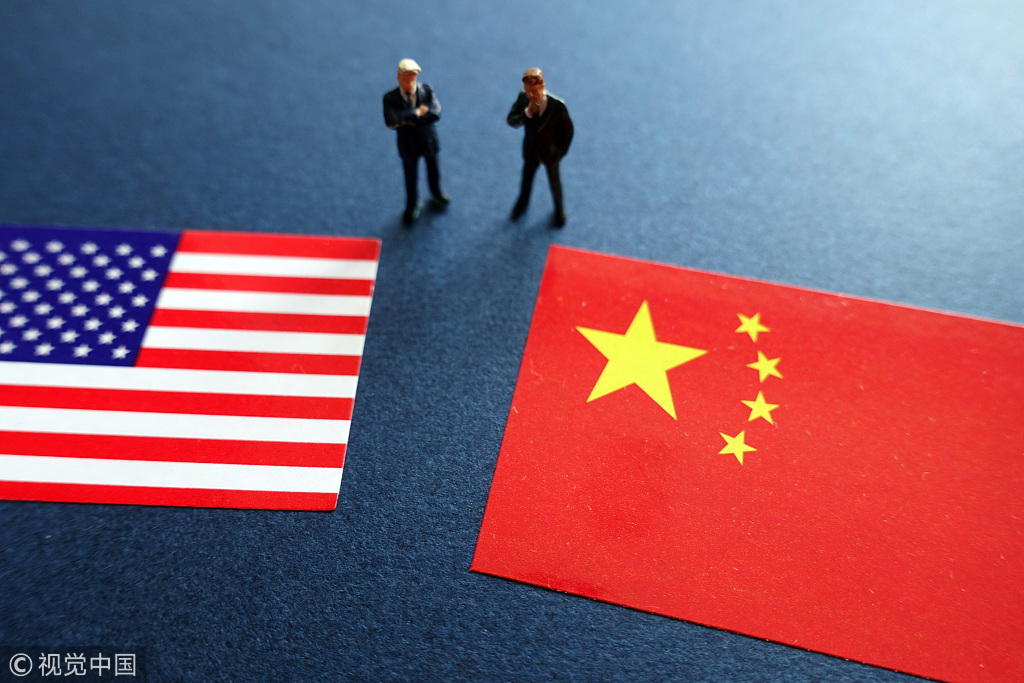China-US ties are intertwined
China Daily Global | Updated: 2020-08-19 09:30
Expert denies cold war, says economic relations remain deep and complicated

The language of a new "Cold War" is being heard quite often these days when foreign policy experts talk about relations between China and the United States.
However, Zachary Karabell, an American author, columnist and consultant, didn't agree there was a cold war.
He wrote in a blog published on the Foreign Policy magazine's website on Friday that applying the 20th century analogies to the US-China relationship is a misuse of history and betrays a deep misunderstanding about what the actual dynamic is between the two countries.
"The United States and China are not in a cold war. They are in a bad marriage, with no current option for divorce. That will remain the case for many years to come," he wrote.
Karabell said the China-US economic relationship is so much more connected and intertwined than the US and former Soviet Union one ever was. "That alone renders the Cold War template almost completely irrelevant as a guide to our present and future."
The economic intertwining between the two countries, as he put it, remains deep, complicated and largely untouched by years of sanctions, tariffs and bad words.
"Never static, ties in the past few years have shifted from engagement with an undercurrent of wariness to wariness with an undercurrent of engagement," he wrote.
Karabell said even with two years of US President Donald Trump's administration's tariffs on Chinese imports and mass disruptions on global commerce and movement of people due to the pandemic, bilateral trade in goods between the two countries is likely to be around $450-$500 billion this year, with close to another $100 billion in services.
Interlocking economies
Still, China holds $1.1 trillion in US Treasury securities, and there are hundreds of billions of dollars of capital stock and factories in China either owned and constructed or maintained by US companies.
"The interlocking economies of the two countries, which the historian Niall Ferguson and economist Moritz Schularick once dubbed 'Chimerica' and which I have called an economic 'superfusion', both enriched and imperiled US companies and consumers," Karabell said.
US manufacturing took a hit in China, just as it had taken a hit from Japan in the 1980s and from Mexico in the 1990s, but US consumers benefited from a slew of cheaper products that made middle-class life more affordable, Karabell said, adding that during and after the financial crisis of 2008, the US was bolstered by Chinese investment in the United States in the form of bond and hard assets.
Karabell said the US and China do have ideological differences, but those are much less acute for the simple reason that China does not seem to seek to export any particular ideology other than state sovereignty.
"Navigating tensions is hard work, and the history of other great powers in the past is of little help," Karabell concluded. He suggested that new tactics be learned to manage a new rivalry for a different century.
However, John Mearsheimer, a professor of political science at the University of Chicago, believed that the real Cold War started before the novel coronavirus, and ideology does not matter much.
Mearsheimer told Japanese newspaper The Asahi Shimbun that "what matters is the balance of power".
Mearsheimer said China has become powerful over the past 20 years and is likely to increase its influence in Asia. The US does not tolerate peer competitors, he said.
China has repeatedly said it will never seek hegemony even as it grows in strength.
In an article published in the online magazine The Diplomat on Aug 3, Zheng Wang, the director of the Center for Peace and Conflict Studies and a professor at the School of Diplomacy and International Relations at Seton Hall University, called for cool heads in the US and China.
Common interests
"The US-China relationship is reaching its most dangerous point. We could hope that the fragile relations suddenly become more durable and harder to break despite the recent upheavals," Wang wrote.
But he believed the two countries still share huge common interests.
The Trump administration, in Wang's words, has appointed a large number of senior officials to positions that they "shockingly lacked credentials or experience for".
"A major concern today is the fact that when sensitive and fragile relationships are in the wrong hands, nothing is impossible," Wang said. "When senior officials display significant carelessness toward a relationship, it is almost impossible to expect lower-level officials-such as warship commanders and air force pilots-to treat their own interactions with dedicated caution and commitment."
























